Evictions are a difficult and often emotional process for both landlords and tenants. While the need for eviction may arise due to non-payment of rent, lease violations, or other issues, it’s crucial for landlords to understand the legal framework and procedures governing the process. In Jupiter, Florida, state and local regulations govern eviction laws, making it essential to navigate these rules correctly to ensure a fair and legal process.
This guide will walk you through the steps involved in eviction procedures in Jupiter, FL, providing actionable advice, examples, and best practices that can help landlords avoid common pitfalls. Whether you’re a seasoned property owner or a new landlord, understanding how to handle eviction properly can save you time, money, and legal headaches.
Understanding the Basics of Eviction
An eviction is a legal process in which a landlord seeks to remove a tenant from a rental property. In Florida, landlords typically pursue evictions when tenants violate the lease agreement, most commonly by failing to pay rent or breaking other lease terms. However, landlords must follow strict procedures when initiating an eviction to avoid legal complications.
Eviction is not an immediate action; it requires a series of steps and compliance with Florida Statutes. Skipping or mishandling any of these steps can result in delays, dismissal of the case, or legal consequences for the landlord. It’s important for landlords to approach eviction with both caution and clarity.
Why Landlords Must Follow the Proper Eviction Procedures
Florida law offers tenants specific protections, which means that landlords must follow the proper legal channels when evicting a tenant. When evicting a tenant, landlords must follow these steps. If they fail to do so, they risk dismissal of the eviction or, in more severe cases, paying financial compensation for wrongful eviction. The most common reasons landlords pursue evictions include:
- Non-payment of rent: The most frequent reason for eviction in Florida.
- Lease violations: Tenants may violate lease terms by causing damage to the property, having unauthorized occupants, or violating noise or pet policies.
- End of lease term: If the tenant stays after the lease has expired and the landlord does not wish to continue the tenancy, eviction may be necessary.
In all cases, the key to a successful eviction is adhering to the legal requirements and taking appropriate actions at each stage of the process.
Key Considerations Before Starting the Eviction Process
Before initiating the eviction process, it’s important to carefully assess the situation and consider potential alternatives. Eviction can be time-consuming, costly, and emotionally taxing, so it’s essential to consider all other options, such as:
Communication with the Tenant: Sometimes a simple conversation can resolve the issue, especially when tenants are facing temporary financial difficulty. Negotiating payment plans or granting extensions may be an option before resorting to legal measures.
Attempting Mediation: Mediation services are available in Jupiter, FL, and can help landlords and tenants reach an agreement without going to court. These services often involve a neutral third party who can help facilitate a compromise, saving both parties time and money.
Consider Lease Renewals or Modifications: In some cases, a tenant may want to stay but needs changes to the lease terms. Reviewing the lease and offering an amendment may prevent an eviction if the tenant is cooperative.
Despite these alternatives, sometimes eviction is the only viable option. If communication and negotiation fail, or if the tenant’s actions require legal intervention, it’s time to proceed with the formal eviction process.

Get a Free Rental Analysis
Want to know how much your home will rent for? We’ll send you a free rental report!
Steps to Initiate an Eviction in Jupiter, FL
Eviction is a legal process that requires landlords to follow specific steps to remove a tenant from their property. In Jupiter, FL, and across the state, landlords must comply with Florida Statutes to ensure the eviction is legally sound. Skipping or mishandling any part of the process can lead to delays, complications, or even the dismissal of the eviction case.
This section outlines the critical steps involved in initiating an eviction in Jupiter, FL. It covers the proper notices, timelines, and documentation landlords need to consider to ensure that the eviction process proceeds smoothly and in compliance with the law.
Step 1: Serve the Proper Notice
The first step in any eviction process is providing the tenant with the appropriate notice. Florida law requires landlords to give written notice before filing for eviction in court. The type of notice you must provide depends on the reason for the eviction.
Types of Notices
Three-Day Notice for Non-Payment of Rent: If the tenant has not paid rent within five days after the due date, you may issue a Three-Day Notice to Pay Rent or Quit. This notice gives the tenant three business days to either pay the overdue rent or vacate the premises. Note that the three days exclude weekends and holidays.
Seven-Day Notice for Lease Violations: If the tenant violates a lease term (such as unauthorized pets, noise violations, or property damage), you must provide a Seven-Day Notice to Cure or Quit. This notice gives the tenant seven days to resolve the issue or face eviction proceedings. If the tenant does not fix the violation, the landlord can proceed with the eviction.
Thirty-Day Notice for Termination of Month-to-Month Tenancy: If the lease is month-to-month and the landlord does not wish to renew it, they must provide a 30-day notice to terminate the tenancy. This notice should clearly state the landlord’s intention to end the tenancy at the end of the lease term.
Seven-Day Notice for Repeated Lease Violations: If the tenant has repeatedly violated lease terms within the last 12 months, you may issue a Seven-Day Notice for Termination of Tenancy. This notice does not give the tenant an opportunity to fix the issue but provides a direct path to eviction.
Important Considerations
Proper Delivery of Notice: The landlord must deliver the notice to the tenant in person. If that is not possible, they can post it at the door and mail it. You may want to retain proof of delivery, such as a certificate of mailing or a signed acknowledgment from the tenant.
Calculation of Notice Period: Be sure to count only business days (excluding weekends and holidays) when calculating the notice period. This ensures that you’re giving the tenant the full notice period required by law.
Step 2: File an Eviction Complaint
Once the notice period has passed and the tenant has failed to either resolve the issue or vacate the premises, the landlord can file a formal eviction complaint with the court.
Filing the Complaint
The landlord must file the eviction complaint at the Broward County Clerk of Court for eviction cases in Jupiter. The complaint should contain:
- The names of the parties involved (landlord and tenant).
- A clear statement of the reason for the eviction (e.g., non-payment of rent, lease violations, or expiration of lease).
- The details of the lease agreement, including rent payment terms, due dates, and any violations.
The landlord must provide proof that they properly served the required notice.
When the landlord files the complaint, the court issues a summons and serves it to the tenant. This informs the tenant that the landlord has sued them for eviction and outlines the timeframe in which they must respond.
Court Fees
Filing an eviction complaint comes with associated court fees, which can vary depending on the county. These fees are typically modest, but the landlord must pay them at the time of filing. Ensure that you are prepare to cover these costs, as failing to do so will delay the process.
Step 3: Attend the Court Hearing
Once the landlord files the complaint and serves the summons, the court schedules a hearing. The tenant then has an opportunity to respond to the complaint and raise any defenses they may have. Common defenses include claims of improper notice, allegations of habitability issues, or disputes over rent payments.
Preparing for the Hearing
Landlords should prepare thoroughly for the court hearing by gathering and presenting all relevant documentation, such as:
- A copy of the lease agreement.
- Proof of non-payment (e.g., unpaid rent ledgers, bank statements, or payment records).
- Copies of the notice(s) served to the tenant.
- Photographs or other evidence of property damage (if applicable).
Make sure to bring all documentation in an organized manner, as the judge will rely on these documents to determine the outcome of the case. Be professional, concise, and respectful when presenting your case.
Step 4: Judgment and Writ of Possession
After the hearing, the judge will render a decision. If the judge rules in favor of the landlord, they will issue a Final Judgment of Eviction. The court will order the tenant to vacate the property within a specific time frame, usually between 24 and 48 hours.
If the tenant does not vacate the property within the allotted time, the landlord may request a Writ of Possession, which authorizes law enforcement officers to physically remove the tenant from the property. The Sheriff’s Department typically handles this process.
Enforcing the Writ of Possession
Once the court grants the Writ of Possession, law enforcement officers will notify the tenant of the final date by which they must leave the property. If the tenant has not vacated by this date, officers will arrive at the property to remove the tenant and their belongings. The landlord must not take matters into their own hands and must rely on law enforcement to handle the physical eviction.

Tenant Defenses and How to Handle Them
While landlords may follow all the required legal steps when filing for eviction, tenants have the right to defend themselves against eviction. In some cases, tenants may be able to delay or prevent an eviction by raising valid legal defenses. For landlords, understanding these potential defenses and knowing how to handle them is crucial to ensuring a smooth eviction process.
In this section, we will explore common tenant defenses raised during an eviction case in Jupiter, FL, and provide guidance on how landlords can respond to and overcome these defenses.
Common Tenant Defenses in Eviction Cases
Improper Notice One of the most common defenses tenants raise is that they did not receive the proper eviction notice. Florida law is very specific about the requirements for serving notice, including the type of notice required (e.g., Three-Day Notice for non-payment of rent or Seven-Day Notice for lease violations) and the manner of service (e.g., hand delivery, posting on the door, or certified mail).
How to Respond:
- Ensure that you follow the notice requirements to the letter. Keep copies of all notices sent to the tenant, along with any proof of service (e.g., certified mail receipt, signed acknowledgment, or photographs of posted notices).
- Prepare to present these documents in court if the tenant raises this defense.
Failure to Pay Rent Due to Habitability Issues. Tenants may argue that they withheld rent because the property was uninhabitable due to unresolved maintenance issues, such as plumbing problems, mold, or lack of heat or air conditioning. People refer to this defense as the “implied warranty of habitability.
How to Respond:
People refer to this defense as the “implied warranty of habitability.”
- Landlords have a responsibility to maintain the property in a habitable condition. If a tenant withholds rent for this reason, the tenant must have informed you in writing about the issue, and the issue must be significant enough to affect the health and safety of the tenant.
- If the tenant claims habitability issues, gather evidence of your efforts to repair the property. Documentation of repair requests, receipts, and communication with the tenant can help counter this defense. If the property was in good condition and the tenant simply failed to report any issues, prepare to present this evidence.
Payment of Rent Tenants may claim that they paid the rent in full but the landlord failed to credit the payment or properly account for it. This defense often arises in cases of confusion over partial payments, late fees, or payment methods.
How to Respond:
- Keep thorough records of all rent payments, including bank statements, payment receipts, or online payment logs.
- If the tenant paid rent in cash, be sure you have a signed receipt or other proof of payment.
- Show a clear and accurate record of any rent arrears or missed payments. If late fees are being disputed, ensure they are properly outlined in the lease agreement and have been communicated to the tenant.
Retaliation A tenant may assert that the eviction is retaliatory in nature. Florida law prohibits landlords from evicting tenants in retaliation for exercising their legal rights, such as complaining about unsafe conditions or joining a tenants’ association. If the tenant can prove retaliation, the eviction may be dismissed.
How to Respond:
- Ensure that the eviction is based on legitimate, non-retaliatory reasons. If the tenant has previously complained about conditions, make sure you have evidence that you attempted to resolve the issue promptly and in good faith.
- Avoid making threats or retaliatory actions when tenants assert their rights. Always document your interactions with the tenant, including maintenance requests and how those requests were handled.
Discrimination Tenants may claim that the eviction is based on discrimination. The Fair Housing Act prohibits discrimination on the basis of race, color, religion, national origin, sex, familial status, or disability. If a tenant raises a discrimination claim, they may argue that the eviction is an unlawful act of discrimination.
How to Respond:
- Ensure that your actions as a landlord comply with anti-discrimination laws. Any decision to evict a tenant should be based on non-discriminatory factors such as the tenant’s failure to pay rent or violation of lease terms, not on their race, religion, or other protected characteristics.
- If the tenant raises a discrimination defense, make sure that you have documentation that proves the eviction is being pursued for legitimate, non-discriminatory reasons.
Breach of Lease by Landlord In some cases, tenants claim that the landlord has breached the lease agreement and is therefore not entitled to evict the tenant. For example, if a landlord fails to provide promised amenities or violates the terms of the lease, the tenant may argue that the landlord has violated their contractual obligations.
How to Respond:
- Review the lease agreement carefully to ensure that both you and the tenant are abiding by its terms. If the tenant is claiming a breach by the landlord, you may need to address any issues that could have led to this defense.
- Be prepared to show that you have fulfilled your obligations under the lease, such as providing maintenance, keeping the property in good condition, or meeting any other contractual promises.
What to Do if a Tenant Raises a Defense
If a tenant raises a defense in court, the case will not be automatically dismissed. Instead, the landlord will have the opportunity to respond to the defense and provide counter-evidence.
Here are some tips for handling tenant defenses effectively:
Prepare Thorough Documentation: Documentation is your strongest ally when responding to tenant defenses. Always keep copies of communications, payment records, repair receipts, and any other relevant documents. These documents will be critical in proving that the eviction is justified.
Remain Professional: Eviction cases can be emotional, but it is crucial to remain professional and focused on the facts. Avoid personal attacks or emotional responses to the tenant’s claims. Stick to the facts and present evidence that supports your position.
Seek Legal Counsel: If you are unsure how to handle a tenant defense, or if the case is particularly complex, consider consulting with an attorney. A lawyer specializing in landlord-tenant law can help you navigate the defense process and ensure that you respond appropriately.
Evaluate Settlement Options: In some cases, it may be worth exploring settlement options. For example, the tenant may be willing to move out voluntarily or agree to a payment plan to resolve the dispute. If both parties can reach an agreement outside of court, it can save time and money for everyone involved.

Handling the Eviction Hearing and Final Judgment
Once an eviction lawsuit has been filed and all necessary steps have been taken, including serving the tenant with proper notice and responding to any defenses, the case moves to the hearing phase. In this final part, we will discuss how to handle the eviction hearing, what to expect during the process, and how to proceed after a judgment is made.
Preparing for the Eviction Hearing
The eviction hearing is the final step in the process where both parties (the landlord and the tenant) present their cases to the court. During this hearing, the landlord must prove that they followed all the legal procedures for eviction and that the tenant is legally required to vacate the property. Here’s how to prepare for the eviction hearing:
Review All Documents: Before the hearing, carefully review all documents related to the eviction case. This includes:
- The eviction notice (whether it was a Three-Day Notice, Seven-Day Notice, etc.)
- Lease agreements and amendments
- Payment records and communication with the tenant
- Any photographs, maintenance requests, or other evidence related to the case
Gather Evidence: Bring all the evidence necessary to support your case. This may include:
- Proof of the tenant’s non-payment of rent, if that’s the reason for eviction
- Documentation showing that proper notice was served to the tenant
- Any written correspondence between you and the tenant, including maintenance requests or complaints
- Copies of any receipts or payment logs that show the tenant’s arrears
Prepare Your Testimony: Be prepared to explain the situation clearly and concisely. When testifying in court, stick to the facts and avoid becoming emotional. If you have any supporting witnesses (such as property managers or maintenance workers), be sure they are available to testify as well.
Know the Tenant’s Defenses: Understand the possible defenses the tenant might raise during the hearing, such as improper notice, retaliatory eviction, or uninhabitable living conditions. Be ready to counter these defenses with solid evidence that demonstrates your actions were lawful and justified.
Consult Legal Counsel: If the eviction is particularly contentious or complex, it is advisable to consult with an attorney. A lawyer specializing in landlord-tenant law can provide guidance and represent you in court.
What to Expect During the Eviction Hearing
The eviction hearing is a relatively straightforward process, but it’s important to know what to expect to ensure that you are well-prepared. Here’s an overview of the hearing process:
Opening Statements: The judge will begin by asking both parties to present their cases. You (the landlord) will present your evidence and testimony, followed by the tenant’s defense and any supporting documentation they wish to present. The tenant may raise any legal defenses they have, and the judge will allow both parties to speak.
Presenting Evidence: You will have the opportunity to present the evidence you’ve gathered (such as payment records, lease agreements, and communication with the tenant). The judge will review this evidence before making a decision.
Witness Testimony: If you have any witnesses (such as property managers or maintenance workers), they will be called to testify. Make sure your witnesses are prepared to speak clearly and provide relevant information.
Tenant’s Defense: If the tenant raises any defenses, the judge will give both sides a chance to address them. You may need to explain why the tenant’s defense is not valid, using your evidence to support your position.
Judge’s Decision: After hearing both sides, the judge will issue a ruling. If the judge finds in favor of the landlord, they will issue a final judgment of eviction. If the judge finds in favor of the tenant, the case may be dismissed, and you may need to consider alternative options for resolving the dispute.
After the Judgment: The Writ of Possession
If the court rules in favor of the landlord and issues a final judgment of eviction, the next step is obtaining a Writ of Possession. This is the legal document that authorizes law enforcement to remove the tenant from the property if they do not vacate voluntarily.
Requesting the Writ of Possession: After the final judgment is issued, the landlord can request a Writ of Possession from the court. This must be done within 30 days of the judgment. The Writ of Possession is then served on the tenant, notifying them that they have a specified period (usually 24 hours) to vacate the property.
Execution of the Writ: If the tenant does not leave the property voluntarily within the time frame specified in the Writ of Possession, the sheriff or law enforcement officers will carry out the eviction by physically removing the tenant and their belongings from the property. It’s important to note that landlords are not permitted to personally remove the tenant or their belongings, and this must be handled by law enforcement.
Handling Property Left Behind: If the tenant leaves belongings behind after being evicted, the landlord must follow the proper procedure for handling abandoned property. In Florida, landlords are required to store any personal property left behind for a certain period of time, allowing the tenant a chance to retrieve it. If the tenant does not claim their belongings, the landlord may dispose of the property in accordance with Florida law.
Best Practices for Avoiding Future Evictions
Eviction should always be the last resort, and it’s best to take steps to avoid the situation altogether. Here are some best practices to minimize the chances of facing an eviction in the future:
Screen Tenants Carefully: One of the most effective ways to avoid eviction is to thoroughly screen tenants before renting to them. Consider using a tenant screening service to check credit, criminal history, and rental references. A strong rental history and a good credit score are indicators of a reliable tenant.
Clear Lease Agreements: Ensure that your lease agreements are clear, detailed, and legally sound. Clearly outline the responsibilities of both parties, including rent payment terms, maintenance responsibilities, and consequences for lease violations. Having a strong lease agreement can help prevent misunderstandings and disputes.
Promptly Address Maintenance Issues: Respond to tenant maintenance requests in a timely manner. Not only does this keep your property in good condition, but it also prevents tenants from becoming frustrated and potentially seeking to withhold rent due to habitability issues.
Communicate Effectively with Tenants: Foster open communication with your tenants. If a tenant is struggling to pay rent, engage with them early and offer possible solutions, such as setting up a payment plan. Early intervention can often prevent issues from escalating into eviction situations.
Consider Alternative Dispute Resolution: If conflicts arise with tenants, consider using mediation or other alternative dispute resolution (ADR) methods. These processes can help resolve disputes in a less formal and often quicker manner, avoiding the need for a lengthy eviction process.
By understanding the eviction hearing process, preparing thoroughly, and following the appropriate legal steps, landlords can increase their chances of a successful eviction. While eviction is never an ideal situation, knowing how to navigate it effectively can help landlords protect their property rights and avoid costly legal issues.
If you follow the advice and practices outlined in this guide, you will be well-prepared to handle the eviction process in Jupiter, FL, and safeguard your rights as a property owner.
Suggested Helpful links:
The Comprehensive Guide to Legal Compliance in Palm Beach County Property Management
How to Ensure Legal Compliance in Property Management in Palm Beach County

